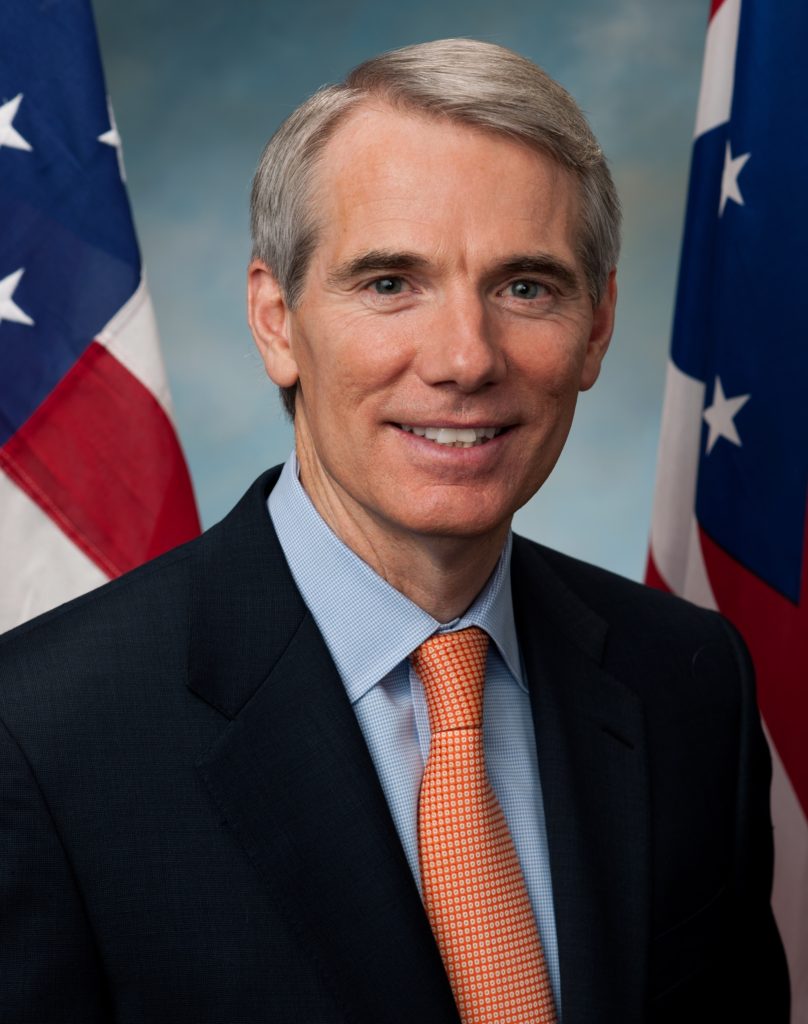Sen. Portman urges FCC Chairman Pai to encourage broadband deployment in Appalachian Ohio


Sen. Portman urges FCC Chairman Pai to encourage broadband deployment in Appalachian Ohio
WASHINGTON, DC – U.S. Senator Rob Portman (R-OH) sent a letter to FCC Chairman Ajit Pai urging him to modify the new Rural Digital Opportunity Fund (RDOF) to encourage deployment of broadband internet in Appalachia.
Broadband providers in Appalachian Ohio are concerned that the current structure of RDOF dis-incentivizes internet deployment in that region of the country. More than one million Ohioans still lack access to fast, reliable broadband in their homes. Senator Portman has introduced the Revitalizing Underdeveloped Rural Areas and Lands (RURAL) Act to preserve jobs and encourage infrastructure development by expanding tax-exempt cooperative organizations’ access to government grants and assistance, including rural broadband grants and FEMA disaster relief.

“Appalachian Ohio is a uniquely unserved part of our nation. Broadband maps often overstate coverage, and a mix of low population density and mountainous terrain make internet build out expensive. The losers from this unfortunate combination of policy and topography are our constituents who, in an increasingly internet-enabled society, are being left behind. The RDOF should ensure that the handful of constituents in difficult to reach locations are not sacrificed by a simple cost-benefit analysis without more consideration of how to include them in the lifeline of the modern economy,” Portman said in the letter. “One way to do this would be to structure auction conditions to ensure bidders prioritize deployment to difficult to reach locations. I understand the high cost of serving some of these individuals, but believe they should not be written out of the conversation.”
The letter is copied below and is available here.
December 4, 2019
Dear Chairman Pai,
I write to express my support for modifications to the Rural Digital Opportunity Fund (RDOF) that are specific to Appalachia. I thank you for your efforts to close the digital divide and dedicate funding to broadband deployment in difficult to reach places.
Appalachian Ohio is a uniquely unserved part of our nation. Broadband maps often overstate coverage, and a mix of low population density and mountainous terrain make internet build out expensive. The losers from this unfortunate combination of policy and topography are our constituents who, in an increasingly internet-enabled society, are being left behind.
For these reasons, I ask the Federal Communications Commission (FCC) to consider Appalachia-specific modifications to the RDOF to incentivize sustainable investment in the region.
Performance tier weighting in favor of baseline (25/3 Mbps) speeds ultimately may delay faster gigabit deployment in the region, given the lengthiness of RDOF’s first round of funding. Moreover, fiber-to-the-premise (FTTP) offers the best solution for comprehensive coverage. Wireless and satellite solutions are unreliable in a region dense with foliage and marked by mountains, ravines, slopes, and hollows. While these deployment methods are successful in other parts of the country, in Appalachia, FTTP is likely the best option for the region’s residents. This is not to preclude wireless technologies from Appalachian deployment, but merely to note the value FTTP offers to the region, and recognize that FTTP can help facilitate greater regional wireless deployment as well.
The RDOF should ensure that the handful of constituents in difficult to reach locations are not sacrificed by a simple cost-benefit analysis without more consideration of how to include them in the lifeline of the modern economy. One way to do this would be to structure auction conditions to ensure bidders prioritize deployment to difficult to reach locations. I understand the high cost of serving some of these individuals, but believe they should not be written out of the conversation.
This is not to suggest that these proposals should be adopted for all aspects of the Rural Digital Opportunity Fund, and I realize that some of these proposals may not work for other parts of rural America. Rather, it is important to note the unique obstacles to Appalachian deployment, and encourage the FCC to consider these suggestions for broadband investments in Appalachia.
I appreciate your leadership on issues related to the digital divide, and thank you for the consideration of our proposals









